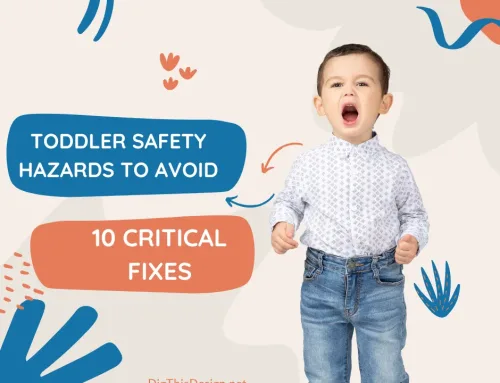When you purchase a new home but still have your current home, what do you do with it? It depends on your particular situation, but you most likely will either sell or rent out your house. But, which way do you turn? Do you put it on the market? Or, do you rent it out to reliable tenants? There’s really no straight answer, as everyone’s situation is unique.
However, there are some things you need to consider before diving into either. So, do you sell or rent out your house? Whether you intend to make upgrades for new types of flooring or decide to hire a property management service, here are six factors to consider.
6 Steps to Determine Whether to Sell or Rent Out Your House

1. Determine Your ROI
The most important consideration in deciding to sell or rent out your house is to analyze your return on investment. It’s not always a seller’s market and you might be better off waiting. Determine your return on investment if you sell the property in the climate of the current housing market. Take into account any renovations and increase your home’s worth with some of the best flooring for resale value.
If you find you will make a good profit, then sell! However, if you determine that you would make very little ROI, wait for the market to improve and consider renting the home out to reliable tenants on a yearly or month-to-month contract. At least during this time, you are collecting rent instead of paying a mortgage for a vacant home.
2. Will the Property Produce Steady Cash?
Another critical step in deciding whether to sell or rent out your house is to analyze the cash flow. First, break down all the expenses. This helps you determine if renting the house at market value pays enough to avoid financial loss.
Deduct everything from the mortgage and any property taxes, insurance and utilities you plan on paying. Also factor in unexpected vacancies, appliances and home repairs, and HOA fees. With these expenses and the average rate of a comparable rental, can you guarantee the property will produce a monthly profit or will you lose money? If it’s a loss, selling your house is the more optimal decision.
3. Consider the Taxes
Typically, when you sell real estate and make a profit, you pay up to 20 percent of capital gains on the sale, depending on your tax bracket. However, there is an exception.
The IRS allows homeowners to exclude the sale of up to $250,000 (double if married and filing jointly) of a primary residence if the home was lived in for at least two of the last five years.
For instance, if you and your partner purchased your first home for $150K, you could sell the property for $500K and clear $300K after sales expenses. However, if you keep the home and turn it into a rental for at least five more years and then sell it, you may owe $60K in taxes. But if you decide to sell in the current market, you get to keep the $300K without paying capital gains tax.
Of course, there’s always a chance the property will appreciate in a value that is higher than what the tax would have been, but it’s not a guarantee. Speak to a CPA to learn more about capital gains tax exclusions or consult a tax advisor.
4. Evaluate the Economy and Housing Market
It’s always wise to pay close attention to the economy and housing market, whether you’re selling or renting. It’s quite challenging to predict both, however. As the original homeowner, you are privy to its current conditions and situations.
For example, is the surrounding town and neighborhood improving, or is it declining? Are businesses in the area thriving or are there more “For Lease” signs each and every day? Are other homes along the streets under renovation or abandonment?
Many times, you’ll find that you know these answers better than any market trends might predict or tell you. If you see signs of decline, it might be better to instead sell before it turns for the worse and you end up losing any ROI.
5. Can You Handle Tenants?
Finally, you need to search deep down and ask yourself if you can be a landlord. Many of us are simply not cut out for it, as it comes with loads of responsibility and takes patience to deal with both reliable and unreliable tenants.
At best, you have dream tenants. But even this still requires your due diligence in maintaining the property and making repairs of appliances and other fixes the tenants may need.
Fortunately, as long as the patience and responsibility are there, landlord skills can be learned. As a novice landlord, you’ll make mistakes, but in time, it will come naturally. Heck–you may even enjoy the experience!
But, if you’re not, that’s okay, too! If you prefer to wipe your hands clean of it, designate and pay a professional property management service to take care of everything. While you will have to pay a fee, sometimes, this is totally worth every penny and relieves stress for homeowners looking to renting out their house.
6. Distance
If you bought a new home far away, it’s going to be difficult to check in on your tenants and make repairs yourself. It’s not a showstopper, but worth mentioning as it could mean you can only make it on weekends. However, this is another situation where a property management service can come in handy. You can live states away and know everything is under control.
Will You Rent or Sell Your House?
So, now that you understand some of the pros and cons of selling or renting out your house, which route will you take? On one hand, if the ROI is significant, your best bet is to sell. On the other hand, if the market is not real hot, renting to some friendly tenants may be your best option as you bide your time.
Take a look at the current housing market and calculate what your ROI is to sell. Then, if you choose to rent, consider if you can turn a profit (or at least break even!) Only then are you able to determine the best solutions on selling or renting out your house.
If you have any other suggestions or questions, please leave them in the
Images Courtesy of Canva.
A Detailed Guide on the Different Types of Fences for Homes
6 Selling Home Decor Tips that All Buyers Love





